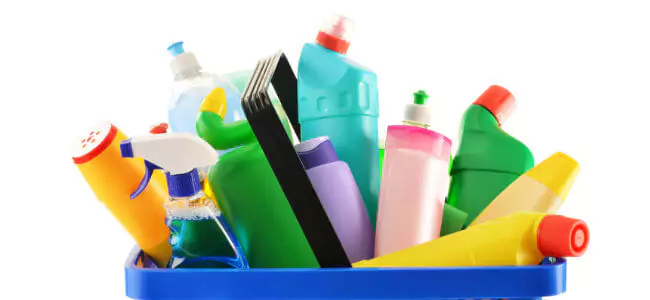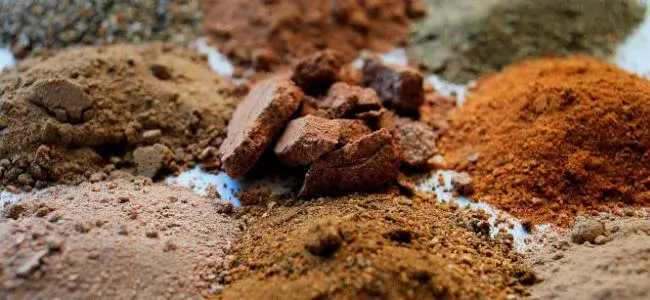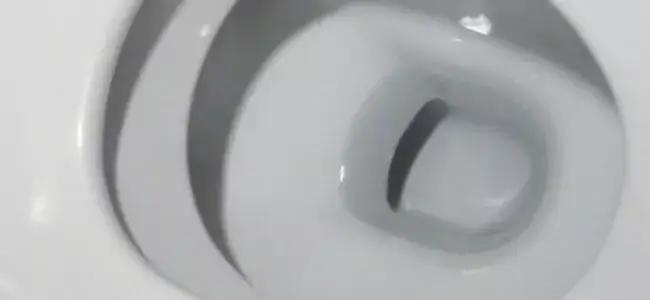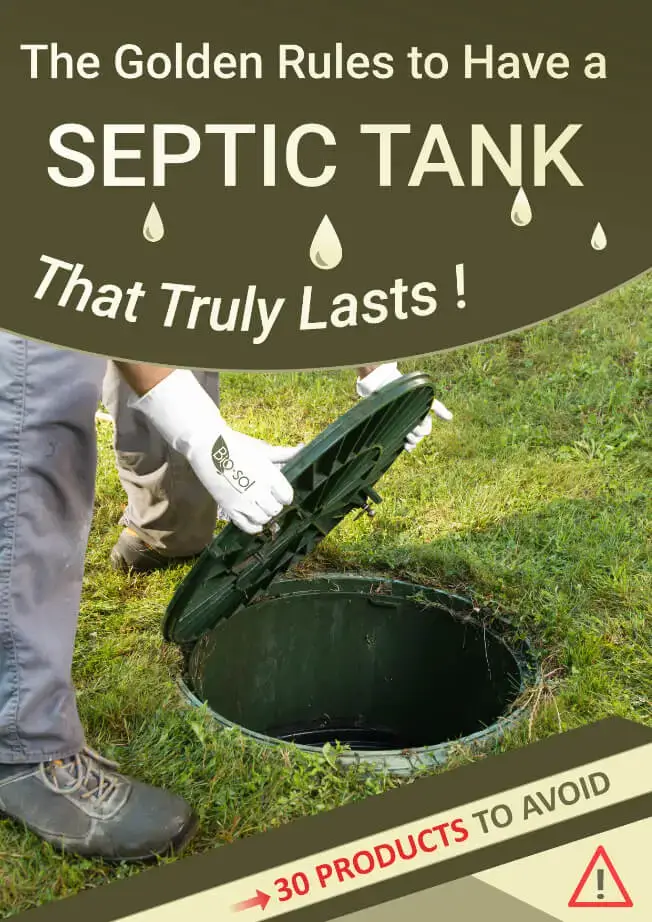Top 10 products to avoid using when you have a septic tank

TABLE OF CONTENTS
What you allow to get into your septic tank will directly impact on its efficiency and longevity. Your septic system has bacteria which play a pivotal role in the system by digesting the organic waste. It is therefore incumbent upon you to avoid sending anything down the drain that would pose any risk to the beneficial bacteria. As a general rule of thumb, avoid flushing anything that can be thrown in the trashcan. But to make it even clearer, here are the top ten household products to avoid when you have a septic tank.
Fabric softeners
The principle of operation of fabric softeners is what makes them a bad idea for septic system owners. They work by adding slimy chemicals to clothes in order to make the garments soft. These slimy chemicals are referred to as quats ((quaternary ammonium compounds) and they are known to kill bacteria. In addition to this, they also have a combination of bases and acids which are used to maintain pH levels when washing in order to improve absorption. Phthalates and other chemicals are also used to add a sweet fragrance to the fabric softeners. All these chemicals make fabric softeners toxic to bacteria and this is why you should avoid using them.
Latex products
Latex products are mostly non-biodegradable and are, therefore, products to avoid flushing. This means that latex products will not be digested with the bacteria and can only be removed at the next pumping. In some cases, the latex might even find its way into the drain field and that can result in clogging up of the system. There is a general misconception that latex condoms are made purely from rubber. The truth, however, is that some synthetic materials are also added to make them stronger and thinner. This is why they are classified as non-biodegradable.
Medicines
If you own a septic system, medicines are products to avoid flushing down the toilet. Do not fall into the temptation of flushing leftover medicines in your toilet. Pharmaceutical products can ruin the bacterial balance in the septic tank thereby resulting in septic failure. Medicines also contain some substances that will easily seep out of the septic tank and end up polluting the groundwater. This is actually a very common phenomenon today. For instance, a 2008 study found that at least 41 million Americans were drinking water that was contaminated by various pharmaceutical products. Instead of flushing the medicines in the toilet, use available take-back disposal programs.
Antibacterial soap
Even from its name, it is quite obvious that antibacterial soap is specially formulated to kill bacteria. If this type of soap goes down your drain, it will do exactly that – kill the useful bacteria in the septic system. Just use ordinary soap to avoid this. Natural disinfectants like lime juice can also be used instead of antibacterial soaps.
Cosmetics
Most cosmetic products contain heavy metals like zinc, chromium, silver, cadmium and even titanium. When you wash off these cosmetics in the sink, some of these metals find their way into the septic tank. since these metals are not biodegradable, they will eventually leave the septic tank in their original state and end up contaminating the groundwater. Cosmetics are therefore some of the most important products to avoid when you have a septic system
Drain cleaners
Drain cleaners are a double-edged sword – not only do they kill bacteria in the septic system but they also corrode the pipes. Drain cleaners should, therefore, be completely avoided even for those that do not use a septic system. To be on the safe side, use an enzymatic and bacterial-made degreaser. If you’re interested, Bio-Sol is selling a very good one. It comes as a liquid and works like a charm.
Bleach
Bleach is highly toxic to bacteria and should either be avoided or used sparsely. Using bleach in small quantities when cleaning clothes is ok but if you overdo it, the bleach might kill the useful bacteria in the septic tank. Furthermore, bleach will also leave the septic tank in its original form thereby resulting in contamination of groundwater.
Dishwasher and laundry detergent
Most laundry and dishwashing detergents have phosphates and surfactants which can easily soak into the drain field. Apart from harming the beneficial bacteria, these phosphates and surfactants can also seep out of the septic tank in their toxic state thereby contaminating the groundwater. To avoid this predicament, always go for detergents that are phosphate-free.
Crushed food
Food particles should not be sent down the drain. Not even if they have been crushed. This is because food particles generally take longer to breakdown than other organic waste. As a result, these food particles could end up in your leach field and cause blockages. All leftover food particles should be scraped off the dishes and disposed of in the compost bin.
Fats, Oils, and Greases (FOG)
Pouring FOG in your sink will attract all kinds of problems. For starters, the FOG will cool down and get stuck on the sides of the pipes. The accumulated fog will continue to trap debris and this could eventually result in clogged pipes. Secondly, bacteria don’t easily break down fats, oils, and greases. FOG will just float in the septic tank to form the scum layer. As this FOG continues to accumulate, the septic tank will fill up faster than usual. Wipe off greasy utensils with a paper towel before washing them just to ensure you are not sending too much FOG down your drain.
Conclusion
Knowing which products to avoid in your home will help you to lengthen the life span of your septic system and also avoid unnecessary failures. The ten products to avoid that we have looked at above are some common harmful products but the list barely scratches the surface. There are many more products that you could be using that are running your septic system without your knowledge. That’s why we compiled a comprehensive eBook that lists 30 products to avoid if you own a septic system. Follow this link to get your free copy of the ebook and start on your journey to a healthy and durable septic system today.
OUR LATEST BLOG POSTS

Strange facts about septic systems
If you are a septic system owner, you might have heard all manner of myths. For instance, there is a common myth that throwing a dead cat in the septic tank can help rejuvenate bacteria and thereby make the septic tank more effective. But is this even true? In this article, we will not only answer that […]

Soils types and their impact on septic systems
SOILS TYPES AND THEIR IMPACT ON SEPTIC SYSTEMS However good your septic system is, it depends on the right soil type to complete the process of purifying the wastewater from your home. The soil type in the drainfield area will determine how well the effluent is filtered and if the water that is sent back to the […]

Avoid flushing these if you have a septic tank
Most homeowners wrongfully assume that their toilet can serve as some sort of garbage disposal. As a result, they end up flushing all manner of things in the toilets. Some of the things that are flushed down the toilet are actually innocent mistakes because homeowners think that is the right way to dispose of the products while in other cases, it is just a don’t care attitude. Whichever the case may be, flushing some of these things can result in septic system failure and it could cost you a fortune. We have rounded up some of the commonly-flushed products that you should never flush if you have a septic system.
PERFECT! I WOULD NEED...
Discover which products are the best for your needs!You can contact us at 1-800-378-6132 (toll free) or click on the following button to access our free online evaluation.
GET A QUOTE ONLINELog in to your account
Whoops! It happens sometimes...
CREATE A NEW ACCOUNT
CONGRATS!
You are now registered and ready to go. You can add and change any of your information on your client profile.
Unfortunately, we do not ship our products to the USA at the moment.
But, if you live in the United States and would like to order them, please fill in the form below. You will then be notified as soon as they are available in your country.
Thank you for your understanding!
Malheureusement, nous n’expédions pas nos produits en France pour le moment.
Mais, si vous êtes résident français et aimeriez les commander, remplissez s’il vous plaît le formulaire ci-dessous. Nous pourrons ainsi vous aviser aussitôt qu’ils seront disponibles dans votre pays.
Merci de votre compréhension!

-
30 products to avoid
-
What to replace them with
-
And everything you should know about your septic system
DOWNLOAD THIS FREE EBOOK!
Which email address should we send it to?


